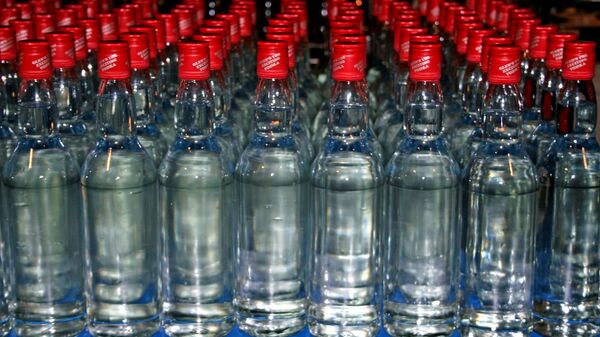The world is living through a stressful time, with the coronavirus and its social and economic side effects heightening tension and stress levels like no other crisis in recent history. However, consuming excessive amounts of alcohol to try to relax and improve one’s mood is a dangerous slippery slope that can lead to alcoholism, Dr. Yevgeny Bryun, head addiction psychiatrist at Moscow’s department of health, warns.
The perceived benefit of alcohol in relieving stress levels is really a “dangerous illusion,” Bryun says, because the subjective improvement in mood experienced through intoxication is unnatural and short-lived.
“A person quickly adapts to the tranquilizing effects of ethyl alcohol, and to achieve the desired effect, increased dosages are necessary from one day to the next, while being in a sober state becomes uncomfortable. The ability to enjoy life without [this artificial] stimulation is lost, because a person’s mood will get worse and worse, while irritation and aggravation over minor things grows. Anxiety increases, sleep patterns are disturbed. Attempts to relieve these unpleasant symptoms with new dosages of alcohol become ineffective,” the doctor explains.
Worse yet, Bryun warns, consumption of alcohol during treatment of a coronavirus infection can lead to serious complications, since alcohol can alter or cancel out the effects of mediciation. “If the amount of alcohol consumed daily is significant enough, medicine will be completetly blocked by alcohol and its fallout,” he says. Furthermore, “part of the alcohol consumed is excreted through the lungs, which makes them vulnerable, especially in combination with smoking.”
Drowning out COVID-19 With Drink
Last week, alcohol suppliers told Russian business media that Russians have been hoarding alcoholic beverages amid the COVID-19 pandemic, even as the civil pressure group ‘Sober Russia’ has asked the Russian government to impose limits on the sale of alcohol during the COVID-19 crisis, citing World Health Organization recommendations.
This week, US media reported that Americans too have increased drinking dramatically amid COVID-19 and economy-related worries, with sales shooting up 55 percent in the third week of March compared to the same period last year, according to Nielsen. Similar trends have been reported around the world, from Finland to India.
Russia has taken a series of steps in recent years to try to improve control over the production, distribution and retail sale of alcohol, banning advertising and increasing excise taxes, among other measures. These steps have helped to reduce Russia’s alcohol consumption from a dangerously high 15.8 liters per capita average in 2010 to 11.7 liters per capita in 2016. However, these figures still remain far higher than the global average of 6.4 liters per person, and the country continues to face higher-than-normal economic and health problems due to excessive alcohol consumption, even as many individuals have cut booze out of their lives.



